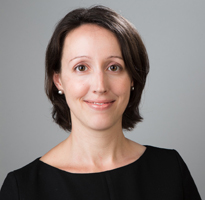
Podcast/Video Interviews by Stephen Ibaraki
Dr. Monique Kuglitsch: Chair of the ITU/WMO/UNEP Focus Group on AI for Natural Disaster Management (FG-AI4NDM) and Innovation Manager at Fraunhofer Heinrich Hertz Institute (HHI)
This week, Stephen Ibaraki has an exclusive interview with Dr. Monique Kuglitsch.
 Dr. Monique Kuglitsch is the Chair of the ITU/WMO/UNEP Focus Group on AI for Natural Disaster Management (FG-AI4NDM) and Innovation Manager at Fraunhofer Heinrich Hertz Institute (HHI) in Berlin, Germany. Her current role combines her two great passions: geosciences and novel technologies.
Dr. Monique Kuglitsch is the Chair of the ITU/WMO/UNEP Focus Group on AI for Natural Disaster Management (FG-AI4NDM) and Innovation Manager at Fraunhofer Heinrich Hertz Institute (HHI) in Berlin, Germany. Her current role combines her two great passions: geosciences and novel technologies.
Monique is from Lexington, Massachusetts. She developed an interest in geosciences (and appreciation for the power of nature) at a young age from many trips to the Alps.
She went to Queen's University, Ontario (with a semester at Harvard University in Cambridge, Massachusetts), for a Bachelor of Arts (Honors) in Physical Geography and French Literature. During a summer internship, she collected and analyzed greenhouse gas emission data for the Executive Office of Environmental Affairs in Boston, Massachusetts.
As a Master's student at the University of Toronto, Ontario, Monique recovered sediment cores from three glacial-fed lakes in the Canadian Cordillera. Using a combination of geochemical methods and statistics, Monique analyzed the content of sediment cores to reconstruct 2,000 years of catchment history. In parallel, Monique gave several undergraduate courses.
For her Doctorate, Monique attended the University of Bern, Switzerland. Building on the experience acquired during her previous studies (and exploring new applications of methods such as reflectance spectroscopy), she used sediment cores from two alpine Swiss lakes (Lake Seeberg and Lake Silvaplana) to produce high-resolution temperature reconstructions (resulting in publications that can be accessed here and here, respectively) and a flood reconstruction. In addition, Monique contributed to a book on climate change and to a study exploring the quality of instrumental temperature data.
In 2012, Monique left academia to join the staff of the American Meteorological Society (AMS) (headquartered in Boston, Massachusetts; though Monique was based in Berlin, Germany). Here, she served as the Lead Technical Editor for the Journal of Hydrometeorology, Journal of Physical Oceanography, and Weather & Forecasting. She also served as the Senior International Communications and Outreach Specialist, representing the AMS at international conferences and authoring a column in the Bulletin of the American Meteorological Society (“AMS Abroad”; a sample column can be found here.
Monique joined HHI in 2018. The institute is recognized for excellence in telecommunications research (related to, for instance, Photonic Networks & Systems, Fiber Optical Sensor Systems, Video Communication and Applications, Vision and Imaging Technologies, and Artificial Intelligence). In the area of AI, the institute has contributed considerably to methods of explainability and robustness. As Innovation Manager, Monique identifies new project ideas and potential partners, helps formulate proposals, and promotes research breakthroughs.
She has also been deeply engaged in HHI’s standardization activities at the ITU. In the ITU/WHO Focus Group on AI for Health, she supported operations. In March 2021, she will kick off a new ITU focus group (FG-AI4NDM) in partnership with the WMO and UNEP, which will be laying the groundwork for best practices in the use of AI for: assisting with data collection and handling, improving modelling across spatiotemporal scales, and providing effective communication in the field of natural disaster management.
During her free time, Monique enjoys spending time with her husband and daughter; on her vacations, she often returns to the Alps.
TO WATCH THE VIDEO INTERVIEW, CLICK ON THIS MP4 file link